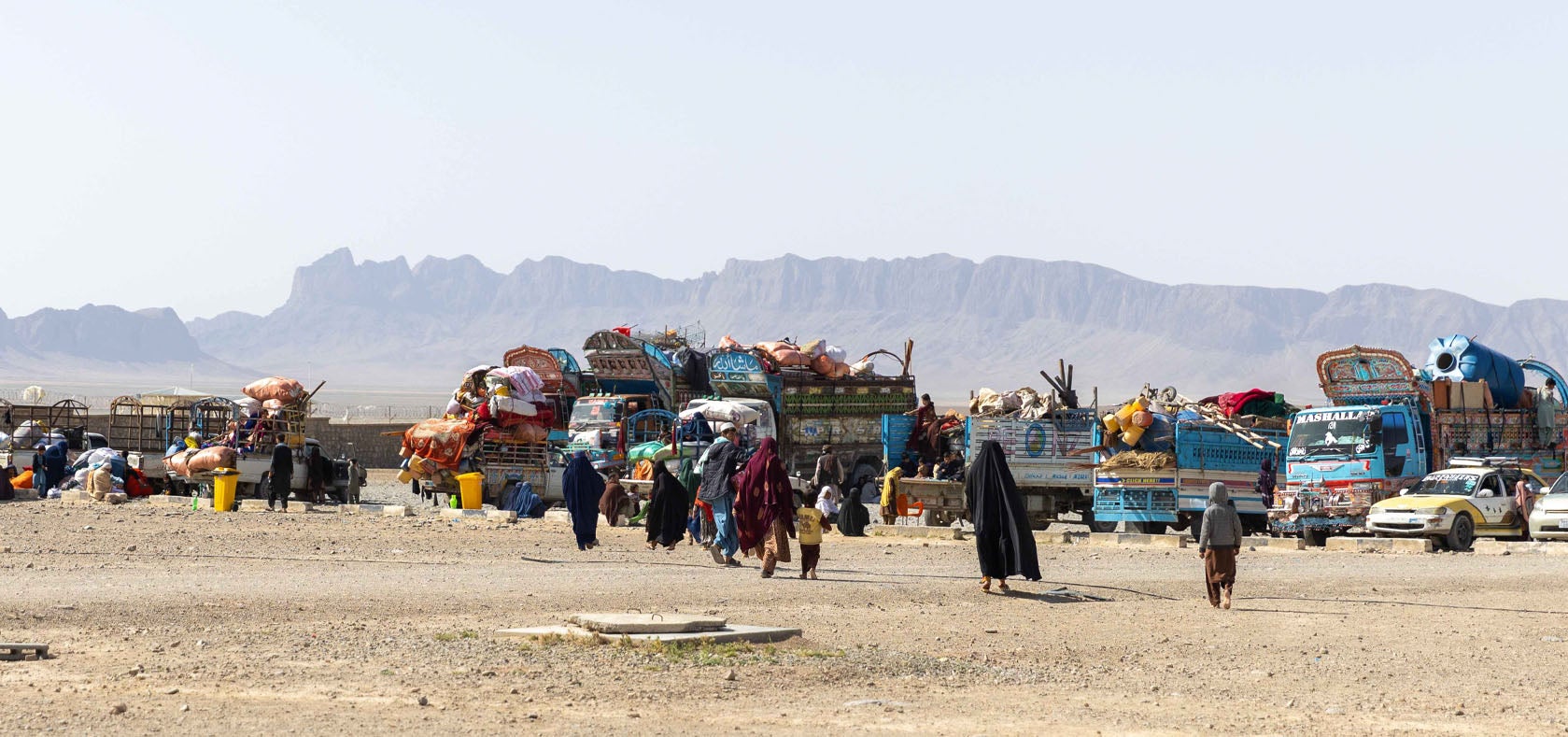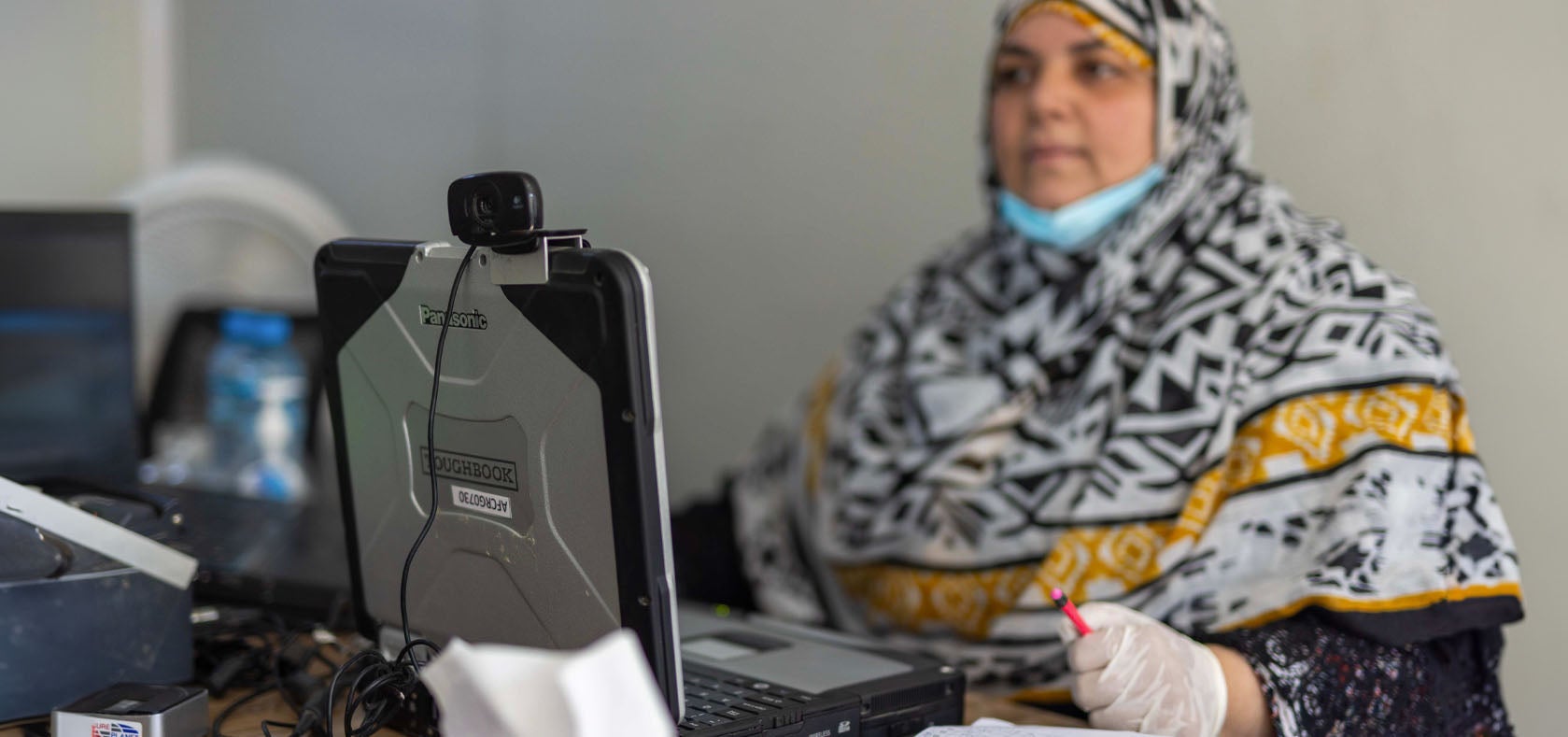Responding to the needs of forced returnee Afghan women and girls
Date:

“My daughter was hungry the other day, so I bought an egg for 10 afghanis. But because we didn’t have any oil, I cooked the egg with Vaseline for her,” laments Shafeya* a 25-year-old widow and mother who recently returned to Afghanistan with her 6-year-old daughter after a decree by the Government of Pakistan forcing undocumented migrants to leave the country. She is now living in Mirwais Mena, Kandahar Province – one of the more than 577,700 estimated Afghan returnees from Pakistan since September 2023.
“Previously, [in Pakistan,] I used to work in people’s homes, but now I don’t have work. I’m forced to collect plastic bottles and cans, and it’s difficult to earn more than 30 afghanis [USD 0.42] a day.”
Shafeya is among the 6,165 Afghan women returnees who have been directly supported by UN Women in Kandahar and Nangarhar provinces between December 2023 and March 2024, with cash assistance benefiting another 15,000 people.
Also among them is Bibi Amina*, a 37-year-old mother of seven who lives in Kandahar’s Spin Boldak District since her husband was imprisoned in Pakistan and she was forced to return: “With this help, I will first buy food for my family. We haven’t had food for two weeks. I will buy medicine for my daughter and sister-in-law, and I will buy shoes for my little daughter because her feet are bare, and she keeps asking when her father will bring shoes for her.”
Because urgent cash assistance was one of the main needs expressed by women returnees in assessments carried out by humanitarian agencies, this has been prioritized in UN Women’s response.
“We’re responding to what women are asking for as their priorities. Cash assistance allows women to meet the immediate needs of their families, and it also empowers them to make their own financial decisions and manage their resources, which builds their confidence and strengthens agency,” says Alison Davidian, Special Representative of UN Women Afghanistan. “Longer-term, our support focuses on boosting women’s skills and access to raw materials and markets for income generation and sustainable livelihoods in their areas of return.”
In partnership with women’s organizations, UN Women has been regularly monitoring the conditions of women at reception centres and border crossings at Spin Boldak and Takhta Pul in Kandahar and at the Torkham border in Nangarhar – as well as their access to the services provided by different stakeholders.
UN Women supports women volunteers to register, inform and refer women returnees to the services available to them, such as the Awaaz helpline, psychosocial counselling and complaint mechanisms.

Safia Elham, a 42-year-old mother of five, works as a Biometric Registration Officer exclusively registering women and girls in the Takhta Pul District of Kandahar Province. She has been working with the Welfare Association for the Development of Afghanistan (WADAN) since December 2023 to register the thousands of Afghan women and girls after a decree came into effect forcing undocumented Afghan migrants to leave Pakistan.
“I like to work with women and for women,” says Elham. “All women and girls above age 14 need to be registered. [In January], about 30–40 women used to visit us daily for the biometric process. But now, up to 190 women are visiting us on a daily basis.”
Elham explains that biometric registration, which is directly linked with the Department of Immigration and Ministry of Interior, helps to avoid duplication and ensure that returnees can access assistance easily. The de facto authorities are providing registered returnees with about 10,000 afghanis (approximately USD 138).
UN Women is providing additional cash assistance for vulnerable women returnees – including women-headed households and women with disabilities – as well as non-food items, such as blankets and hygiene kits.
UN Women has supported local women’s organizations in the southern region to lead and participate in emergency response efforts to ensure that the unique needs and vulnerabilities of women are effectively addressed during times of crisis.
UN Women has also mobilized trained women journalists to collect stories about affected women and communicate evidence-based data with donors and humanitarian platforms.
In addition, the Gender in Humanitarian Action Working Group, co-led by UN Women Afghanistan and CARE International, has published three Gender Alerts on the situation, in November and December 2023, as well as in May 2024, and taken part in multisectoral assessments to gauge women’s needs and advocate for their role in the humanitarian response.
UN Women’s work with returnees is possible thanks to support from donors including the Governments of Austria, Japan, Norway and Sweden, as well as the Women’s Peace and Humanitarian Fund.
* Names changed to protect the women’s identity.